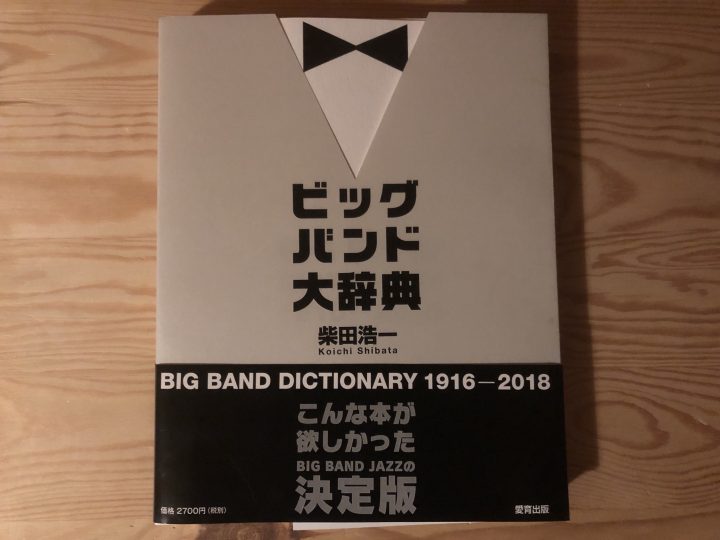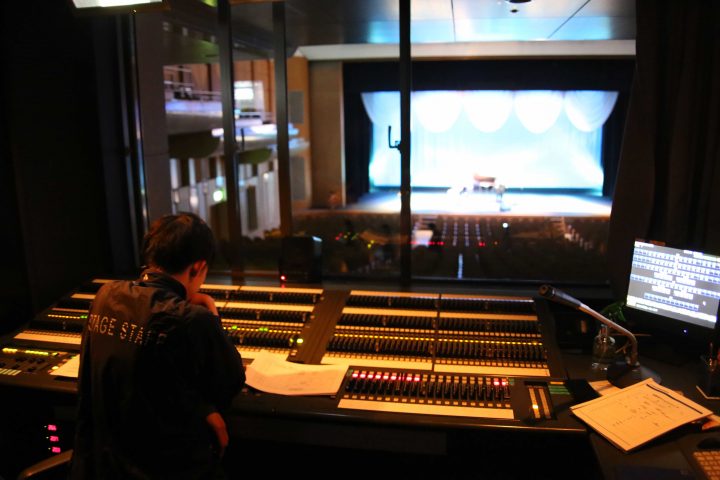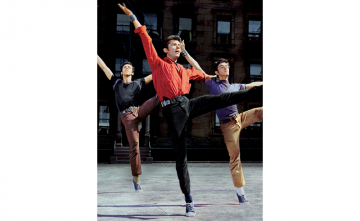Interview with Andreas Ottensamer
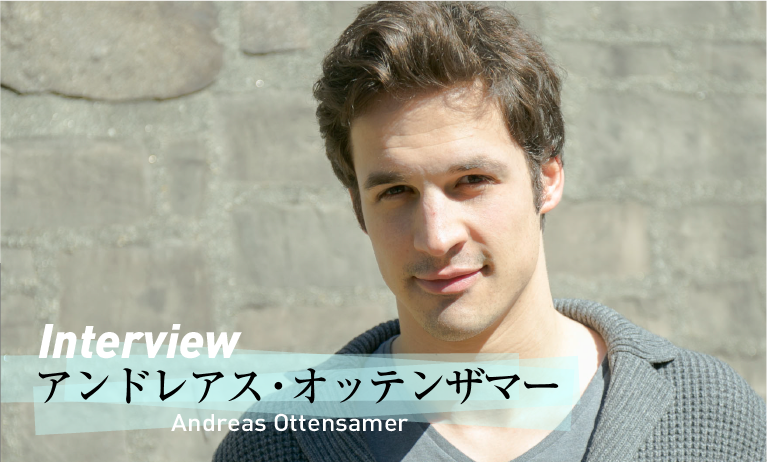
Interview/Text: Yasushi Tanaka Photo: Masamasa Nishino
There are countless words to praise Andreas Ottensamer, principal clarinetist of the Berlin Philharmonic, such as "heaven has given him two gifts" and "he is a thoroughbred in the classical music world." However, when you look at his brilliant profile, you cannot help but agree that he is 25 years old. What on earth is this young man with infinite potential thinking and what is he aiming for?
His favorite food is sushi
- Is this your first time visiting Japan?
I've been to Japan so many times I can't say exactly, maybe 12 or 13 times.
- Does that include not only as a performer, but also when you were taken on your father's concert tours as a child?
No, all of these are from when I became a performer.
- That's amazing. Did you ever accompany your father on his concert tours?
Of course, I have come here with my father, and I have also visited Japan as part of the band "The Clarinotts," which is made up of my father, brother and I.
- I see. I saw the Clarinotts at Hakuju Hall the last time they came to Japan. It was a fun performance. By the way, what is your impression of Japan?
It's wonderful. It's a very good country, especially for classical musicians. All the concert halls are wonderful, the audiences are wonderful, and the food is also great (laughs).
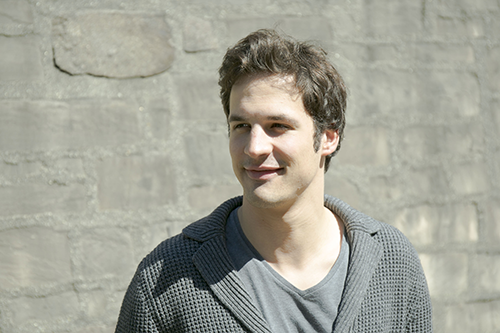
-What is your favorite Japanese food?
I love sushi.
Why did you choose the clarinet?
- I see, sushi is very popular among musicians. Now, you were surrounded by music from your childhood, but what made you first move to the piano, then the cello, and then the clarinet? Did you have some kind of musical plan?
I didn't plan it at all. I started playing the piano because I wanted to try it out, and I started playing the cello with the same motivation. I started playing an instrument in the same way that kids go to an amusement park and play with toys.
- I see, it's common to start with the piano, but do you know why you then chose the cello and then the clarinet? Is it something like a preference for an instrument?
Maybe it started because my family played the cello and clarinet, and we had three instruments, including the piano, in the living room, with the cello next to the piano and the clarinet on top of it.
-- That's a natural situation. But it's amazing that three of your family members are playing the clarinet at the top of the world.
I was surprised about that. I think it's a bit of a risk to have all three of us playing the same instrument, but it's going very well. What's more, I think it's wonderful and lucky that we can plan a concert with all three of us playing the same instrument.
- By the way, wind instruments are very popular in Japan, and it is said that about one in 40 people have experience playing wind instruments. So there are a lot of people who play the clarinet. How about in Austria?
Unfortunately, wind instruments are not that popular in my country, Austria. In that sense, I think Japan is wonderful. I think it's great that children can experience music at school from an early age and touch instruments. In my country, if you want to play music, you have to go to a proper school and study music in a formal manner.
--Apparently, Japan is the only country in the world that provides musical education to all its children.
That's wonderful. I think it's precisely because of that kind of education that we can cultivate such wonderful audiences. I should be grateful for that (laughs).
--I see. It's true that Japan is probably the only country where almost everyone has experience playing the recorder (laughs). However, despite that, it's difficult to find talented wind instrument players.
I think that music education and the number of performers have nothing to do with each other. Whether the base is wide or narrow, I think that there are always only a handful of people who stand at the top. Also, music education is not about nurturing soloists. I think the general purpose is to become familiar with music. Furthermore, it has been proven that learning music makes the brain work differently.
- From an educational standpoint, why did you choose Harvard University in the United States instead of a music college?
I chose Harvard because it didn't require me to decide what to major in. I could decide on my major later while I was there.
What did you study at Harvard?
I don't think what I learned there influenced my career, but I do think it had a big impact on my personality.
- Besides music, you're also good at soccer and tennis. Did you have free reign in whatever you did in your home?
Absolutely. My parents supported whatever I was happy to do, and there were multiple options available to me.
The Berlin Philharmonic is the best orchestra in the world.
--When you were choosing an orchestra, you probably could have joined any one of them, so why did you choose the Berlin Philharmonic?
That's because the Berlin Philharmonic is the best orchestra in the world. What I like most about the Berlin Philharmonic is that it's an environment that allows me the freedom to do other activities in addition to the orchestra, such as solo activities like this time.
- Is that difficult in other orchestras?
Yes. It would be very difficult to do that in other orchestras. I think it's a matter of the sheer amount of work.
- What do you think about the Vienna Philharmonic, in which your father and brother are members?
"Amazing!" (in Japanese)
- I see, that's true. So what do you think is the difference between the Berlin Philharmonic and the Vienna Philharmonic?
It's all different. Not only the members, but also the traditions and the way of approaching the music. The Berlin Philharmonic is a pure symphony orchestra, but the Vienna Philharmonic also performs operas at the Vienna State Opera in addition to symphonies. The Vienna Philharmonic has a tradition that its members must be able to play in the Viennese style. Therefore, the members are selected from a small frame. On the other hand, the Berlin Philharmonic can select from a large frame. In other words, it means that they can gather the best players of each instrument from all over the world. And after joining, they gradually become accustomed to the orchestra.
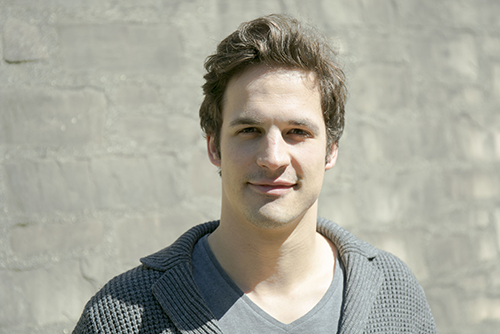
- I see. In that sense, are there differences in the instruments used by the Vienna Philharmonic and the Berlin Philharmonic? For example, what about the clarinet?
There are differences. I play in the Berlin Philharmonic, and I use the same Viennese clarinet as my father and brother. My colleague Fux also uses the Viennese clarinet.
- By the way, would you like to play with the Vienna Philharmonic?
No, no, I’m happy where I am now (laughs).
- That's true (laughs). Still, I think it's unusual for a parent and child to be in two of the world's top orchestras playing the same instrument. And it's even more so because the number of clarinet players is smaller than that of string instruments. Is there a secret to becoming a good clarinet player? I would love to share that with children learning the clarinet in Japan.
There is so much to say that I feel the only way is to write a book. Because it is difficult to give just one hint. First of all, I think you need to practice regularly. At the same time, it is important to have fun. And it is also important to have a vision, prospects and hopes for the future.
The boss is Stephan Dohr
- I see, thank you very much. I will pass that on to the children in Japan. Now, one of your various activities outside of the orchestra is the Ensemble Wien-Berlin, which will be coming to Japan in July this year. This is a very famous and traditional ensemble, but have you been listening to it since you were a child?
To be honest, I didn't know much about them. Of course I knew the name, but I didn't have much experience of actually hearing them play. It's an ensemble that wind players aspire to, so I'm very honored to be able to be a part of it and play there myself.
-- Ensemble Wien-Berlin underwent major changes in its members on the occasion of its 30th anniversary. What changes do you think have resulted from this?
To begin with, each member has a very strong personality, so when a member changes, the ensemble itself changes significantly. However, the traditions that have been cultivated over a long period of time have been passed down to us new members. Of course, we keep in contact with the previous members.
By the way, how do you select the members?
Hmm, I don’t really know about that.
- How did you get in, Mr. Ottensamer?
In my case, I got a phone call out of the blue one day, asking, "What are you doing? Do you want to come?" I said, "Oh, sure, I'll come," and that was it (laughs).
- Who was on the other end of the phone?
The new boss is Stephan Dohr (principal horn player of the Berlin Philharmonic). He is the new boss of the ensemble. I think the scope for choosing the members this time was very small. After all, it was only the Vienna Philharmonic or the Berlin Philharmonic. I don't think there were many options.
- But still, how did you feel about being chosen from among all those wonderful people?
It's a great honor. I'm also honored to be able to play with such great members, and I'm looking forward to trying out various repertoires.
- That's wonderful. You have an attractive program planned for your Japan tour in July, but how do you decide on the pieces? Does your boss, Stephan Dohr, decide? (laughs)
The theme is obvious, isn't it? It's based on the theme of "summer," the time of his visit to Japan. There are some famous songs, but also some lesser known ones. There are also some orchestral arrangements, which I'm looking forward to.
- How many performances does the ensemble perform per year?
Since we have to balance that with our activities in the orchestra, we can't meet up very often. So it's hard to say exactly how many times a year we can meet. That's the most difficult part.
The first ever exclusive contract with a prestigious label
- I see. I'm happy that I'll be able to experience this rare opportunity in July. And it's also amazing that you've signed an exclusive contract with Deutsche Grammophon, the world's best classical music label. I heard that this is the first time in history that a clarinetist has achieved this feat.
It's an incredibly wonderful story. My repertoire is completely unknown on this label, so it's meaningful just to be able to develop it further. It's a great opportunity to receive such a wonderful story at such an early stage in my career, and I think it's wonderful to be able to share my music with a different audience than at concerts.
- Yes, I think that for musicians, recording is like a business card. I think it is very important to have as many people as possible listen to your performance and to have your name known. In that sense, I feel that you are starting a really wonderful career.
Thank you. What's really interesting is that when you compare live performances and recordings, a live performance is something that grows with you. On the other hand, a recording is something that preserves that moment. That difference is very interesting.
- You have already released two albums, "Portraits" and "Brahms: The Hungarian Connection." Are you satisfied with them?
Yes, I am completely satisfied. Of course, I would play it completely differently now than I did on those recordings, but that doesn't mean I would deny those recordings.
--I found your first album, "Portraits," in particular, very interesting, as it was programmed to trace Ottensamer's musical instrumental journey.
Thank you. I think that everyone records their first album with the intention of introducing themselves, but I wanted to introduce myself in a completely different way than what other people have done.
- That's a great way of thinking. We journalists also think about how to introduce the albums we receive, but it's difficult to introduce something that's just a collection of famous songs. However, if the plot and plan are solid like this album, it's very easy to convey it to people.
Mhmm...
- You are still young, so I think the possibilities for your musical career are endless. What do you want to do in the future?
I think there is a lot I can do as a musician. Most recently, I started a festival in Switzerland with the pianist Jose Gallardo, who I am touring with this time. Chamber music has always been close to me. And I think it is important for me now to continue to balance my activities in an orchestra, solo activities, and ensemble activities well.
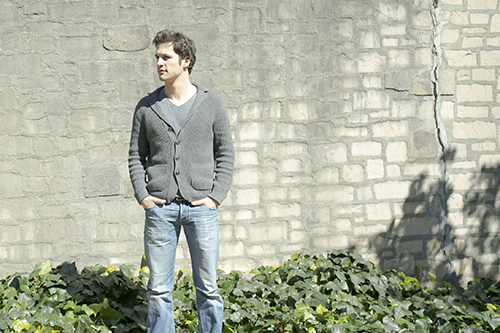
- Besides music, you also work as a model.
Yes, but I'm not doing it that actively.
- Just hearing such an offer is a very positive thing for the classical music industry. Is there anything else you would like to do outside of music?
I already do a lot of things other than music (laughs). Music isn't everything to me.
The sound comes from training through sports!
- I see. What are you most interested in right now?
Sports, of course. Also meeting up with friends and coming up with different projects. I recently renovated my apartment, which took a really long time. I guess that's just part of life, just like everyone else.
- The apartment is in Berlin. How is your life there?
It's great, there's a lot going on, it's a vibrant city, there are a lot of parties.
- Which sport is your favorite, tennis or soccer?
Rather than saying I prefer one over the other, I love both and continue to do both. I've also added golf, skiing, and swimming (laughs). To begin with, I'm really bad at making decisions and choosing.
-- I see. As a wind instrument player, I imagine you can only produce such a good sound if you have a body that's well-trained through sports.
That's absolutely true.
--Speaking of sports, were you aware that there is a lot of buzz in Japan about tennis player Kei Nishikori?
Of course! This time he even had a concert in his hometown of Matsue.
- I see. Then please bring him into the classical music world. I'm sure something interesting will happen.
I'd be happy to do that! Please arrange it. I've played with his coach, Michael Chang.
-- That's great! It would be great if you could teach him the clarinet while learning tennis from him.
That's great. I'd love to make it happen.
- The possibilities are truly endless. I look forward to seeing how you will expand as a person in the future. Good luck!
Thank you.
When we shook hands after the interview, his hand was very large and strong. With an athlete's toned body and a gentle gaze, it's no wonder that this young man is also attracting attention as a model. This talented man, who is likely still in the process of evolving, will show what kind of brilliance he will show when he comes to Japan in July to perform with the "Ensemble Wien-Berlin". I can't wait to see what kind of brilliance he will show.
▼"Ensemble Wien-Berlin" performance information
Date and time: Sunday, July 5, 2015
Venue: Kanagawa Prefectural Music Hall, performance begins at 2 p.m.
Tickets will go on presale at KAme on Saturday , March 7th, and general sale will begin on Saturday, March 13th.
*An interview with Stephan Dohr, leader of the Ensemble Wien-Berlin, is published in ANAGAWA ARTS PRESS .
